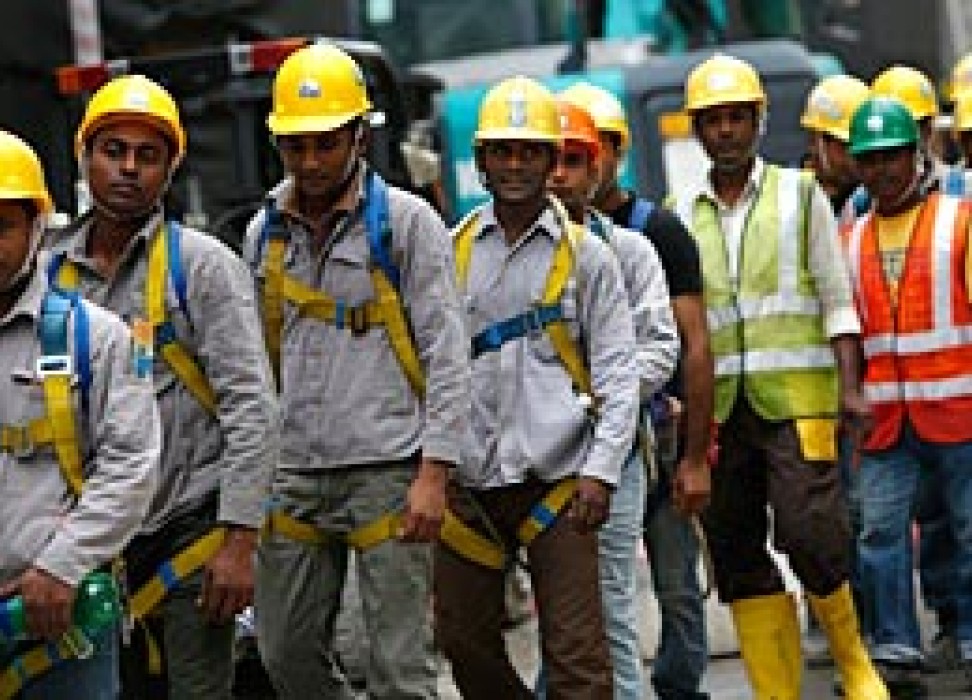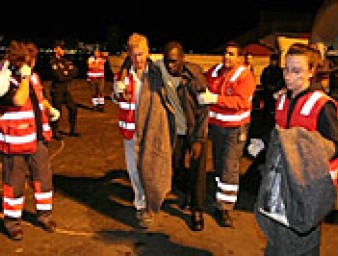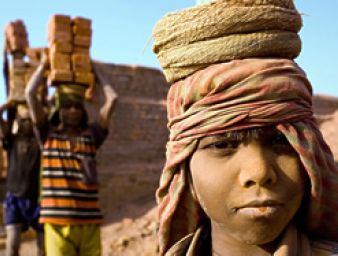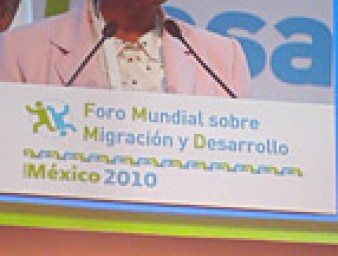Young migrants tell their stories
10 March 2014

In 2010, there were 27 million international migrants aged 15 to 24 in the world and when migrants in the 25 to 34 age group are included, young migrants make up almost one-third of all international migrants, according to the United Nations Department of Economic and Social Affair (UNDESA).
A newly launched UN World Youth Report on Youth & Migration, produced by UNDESA, explores the current situation of young migrants through their own personal stories. The report was marked during a special event at UN headquarters in New York featuring inspiring performances by young poets, musicians, actors, and dancers.
The performances were part of a new initiative, “I Sell the Shadow”, which was curated by Emmy Award-winning filmmaker Lisa Russell. “I was given the opportunity to bring some of the most powerful young voices I know of in New York City to a stage at the United Nations,” says Russell. “These artists have their own personal experiences about migration and it is an opportunity to retell these stories through poetry, music, film, dance and theatre.”
Since the report’s goal was to explore youth migration through the stories of young migrants themselves and how migration has personally affected them, the research was based on a variety of participatory consultations with young migrants—a five-week e-consultation process, a survey on youth migration and development, and a call for youth to create visual artwork depicting the daily life of young migrants.
“The literature on youth migration and its development impact in countries of origin and destination is sparse. This report attempts to fill this gap and offers a comprehensive account of the life experiences of young migrants,” says the report. The report explores the different phases of migration—the preparation, journey, human rights challenges faced in the destination country, as well as the engagement of young people on migration issues.
According to the report, misconceptions surrounding migrants can result in dangerous stereotyping, anti-migrant discrimination and violence, xenophobia, social exclusion, and the abuse of migrants’ human rights. This can also interfere with their social and economic integration and limit their opportunities to benefit from development. Some young people also cited experiencing substandard housing, poor sanitation, and food deprivation, which can take its toll on their physical and mental health. Young migrants in irregular situations may not be able to access healthcare or other essential services, because of legal barriers to access or because they fear arrest and deportation.
The report features several personal accounts from young migrants. One felt harassed by people in his own community in his host country and another was unable to find affordable housing. Another personal story includes a woman whose sexual orientation and her community’s inability to protect her rights within this context were central to her migration decision.
Some of the stories also shed a positive light. The report includes the story of a young man who says that he is grateful for his ability to migrate because he was able to escape his life as a child soldier. Another young migrant will return home to use his medical training in his own community.
“Children, adolescents and youth who migrate, or those who are born to migrant parents, are an increasingly significant part of contemporary migratory movements,” said UN Human Rights Chief Navi Pillay during a recent event focusing on child migration at the High-level Dialogue on International Migration and Development in New York. “Children migrate in various ways with a variety of motives, and their movements should not always be seen merely as an aspect of adult migration. Most national policies do not take account of the needs and rights of migrant children.”
“Recognizing the diversity of youth migrants is important for understanding the impact of migration on the human development of young men and women as well as on their countries of origin and destination,” states the report. “It is also essential for designing specific interventions that address their unique vulnerabilities and engage them to realize their hopes and aspirations.”
While some young migrants may be enthusiastic about the prospect of moving abroad, the process of migration itself is often a challenge. Young people report difficulties in receiving accurate information about their destination and complications in terms of obtaining the necessary documents. Young migrants also find themselves lacking an appropriate support system in their destination. To improve the process and protect young people from human rights abuses, youth participating in online consultations recommend the implementation of awareness-raising campaigns, pre-departure orientation programmes, and peer-to-peer initiatives.
Employment and education were the dominant reasons why many young people make the initial decision to migrate. According to the report, migration may be voluntary or forced. It is important to realize though that in the complex realities of contemporary migration, the lines between wholly forced and wholly voluntary migration are increasingly blurred.
“Let’s also not forget that human mobility, including child mobility, has become much more complex in recent years,” Pillay said. “Journeys are becoming more difficult and precarious. Often, the conditions of migrant children will change along the migratory route, shifting them from one legally defined category to another.”
Many young migrants are forced to migrate, for such diverse reasons as to escape conflict or persecution, or because of poverty, discrimination, natural disasters, and violence. On their journeys, many will experience a range of human rights abuses including human trafficking, abusive smugglers, dangerous border control operations such as interceptions and push backs, and violence at international borders.
While migration outcomes vary, young people have said that the migration experience has changed them. When young student migrants from developing countries return home, they feel their new skills offer a positive developmental impact on their countries of origin and communities.
10 March 2014




